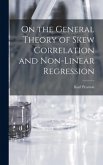A complex disease involves many etiological and risk factors operating at multiple levels-molecular, cellular, organismal, and environmental. The incidence of such diseases as cancer, obesity, and diabetes are increasing in occurrence, urging us to think fundamentally and use a broader perspective to identify their connection and revolutionize treatments. The understanding of biological data derived from studying diseases can be enhanced by theories and mathematical models, which clarify the big picture and help to reveal the overarching mechanisms that govern complex biological phenomena. Focusing on diseases related to cellular energy metabolism, such as cancer and diabetes, Analysis of Complex Diseases: A Mathematical Perspective presents a holistic approach for illuminating the molecular mechanisms of these diseases and the evolutionary underpinning of their simultaneous epidemics. Using mathematics to identify patterns of deviation from normality, or the healthy state-spanning multiple levels from molecules to the organism-the author identifies a range of dynamical behaviors that correspond to either cellular physiology or pathology. He uses the information from multiple levels in order to develop a unified theory, which includes the discovery that certain diseases may stem from well-evolved, useful mechanisms activated in the wrong context. This book is divided into three parts. Part I focuses on the organismal level to describe normal physiology and how the body as a whole meets its functional requirements. Part II addresses the subcellular, molecular level to elucidate the organizing principles of cellular biomolecules to meet the demands of the organism. Part III examines complex diseases by combining information from the organismal level and the molecular level, offering a paradigm that can be extended to the study of other categories of diseases.
Hinweis: Dieser Artikel kann nur an eine deutsche Lieferadresse ausgeliefert werden.
Hinweis: Dieser Artikel kann nur an eine deutsche Lieferadresse ausgeliefert werden.








